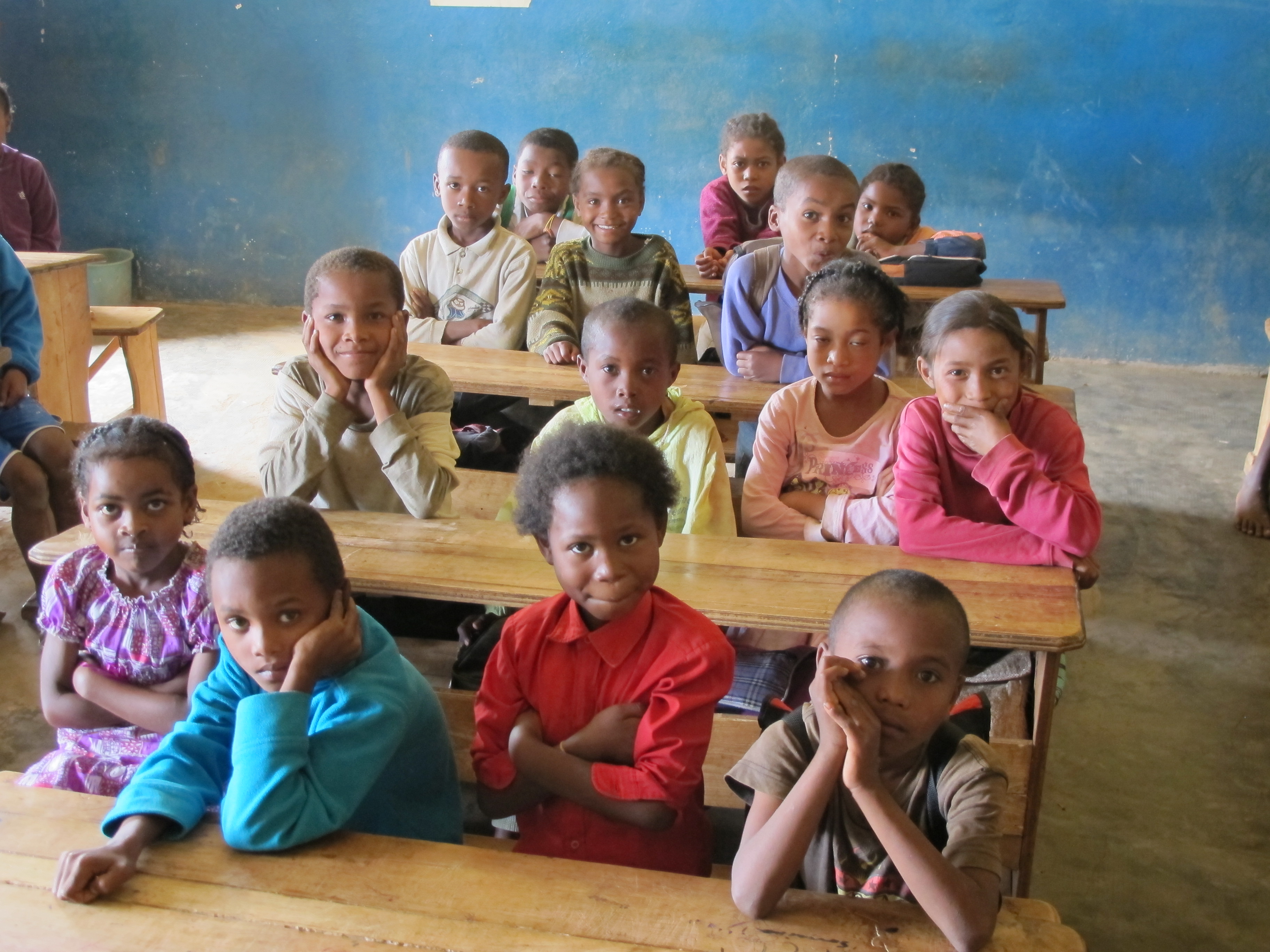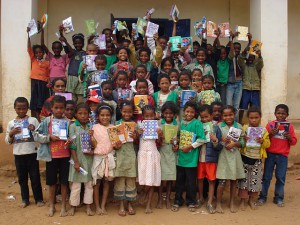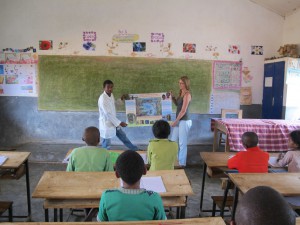As throughout the country, primary schools are the main institutions for formal education in this rural area. The current school curriculum has no specific focus on Environmental Education and is mainly designed for basic knowledge transfer. The CISCO (school board) has recently started to encourage teachers to replace pure front-of-class teaching with more interactive and experiential methods to promote understanding of learning matter.
However, barriers to the implementation of Environmental Education include structural limitations such as a perpetual lack of infrastructural resources and under-educated, poorly paid and subsequently under-performing teachers. In order to promote and permanently embed Environmental Education into school curriculum, these barriers need to be considered.
Most of the inhabitants of Madagascar are unaware of their unique nature and its progressive destruction. Only a few Malagasy have ever seen a lemur in the wild. Very few children come into contact with nature or are informed about it during their education. Consequently, as adults, Malagasy people typically have little interest in nature and the conservation of biodiversity.



